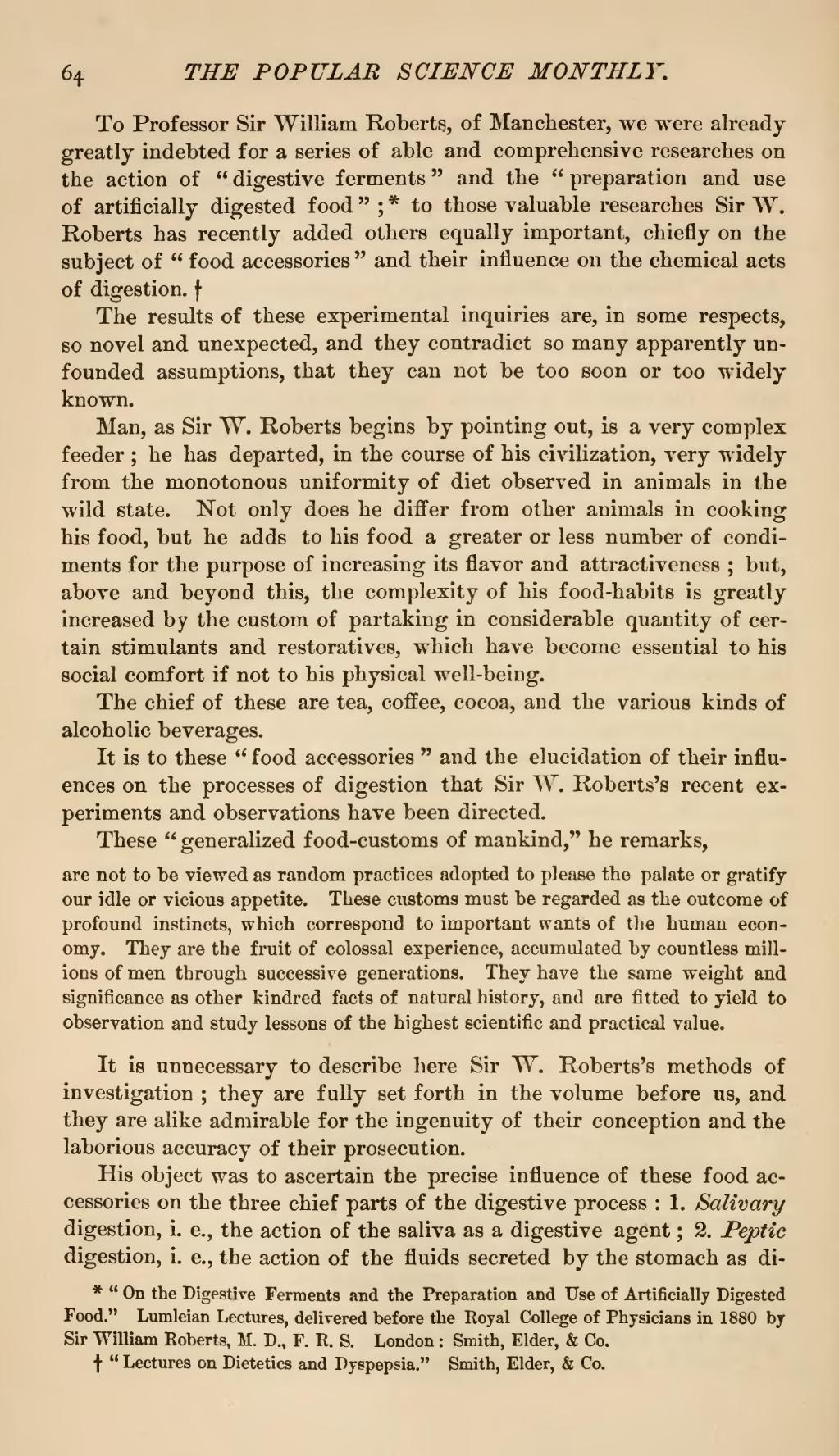To Professor Sir William Roberts, of Manchester, we were already greatly indebted for a series of able and comprehensive researches on the action of "digestive ferments" and the "preparation and use of artificially digested food";[1] to those valuable researches Sir W. Roberts has recently added others equally important, chiefly on the subject of "food accessories" and their influence on the chemical acts of digestion.[2]
The results of these experimental inquiries are, in some respects, so novel and unexpected, and they contradict so many apparently unfounded assumptions, that they can not be too soon or too widely known.
Man, as Sir W. Roberts begins by pointing out, is a very complex feeder; he has departed, in the course of his civilization, very widely from the monotonous uniformity of diet observed in animals in the wild state. Not only does he differ from other animals in cooking his food, but he adds to his food a greater or less number of condiments for the purpose of increasing its flavor and attractiveness; but, above and beyond this, the complexity of his food-habits is greatly increased by the custom of partaking in considerable quantity of certain stimulants and restoratives, which have become essential to his social comfort if not to his physical well-being.
The chief of these are tea, coffee, cocoa, and the various kinds of alcoholic beverages.
It is to these "food accessories" and the elucidation of their influences on the processes of digestion that Sir TV. Roberts's recent experiments and observations have been directed.
These "generalized food-customs of mankind," he remarks,
It is unnecessary to describe here Sir W. Roberts's methods of investigation; they are fully set forth in the volume before us, and they are alike admirable for the ingenuity of their conception and the laborious accuracy of their prosecution.
His object was to ascertain the precise influence of these food accessories on the three chief parts of the digestive process: 1. Salivary digestion, i. e., the action of the saliva as a digestive agent; 2. Peptic digestion, i. e., the action of the fluids secreted by the stomach as di-

